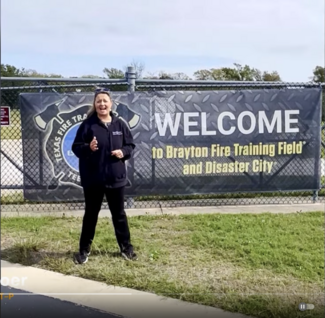Panel Releases Review of Maryland Medevac Program
BALTIMORE, Md. -- Maryland should establish a task force to determine if its Medevac helicopters are correctly located.
The state also needs to take the necessary steps to bring its fleet into compliance with federal air ambulance standards that would include adding an additional provider.
These were among recommendations announced Tuesday by a national panel that reviewed the state's medevac program. The critique was requested by officials Maryland Institute for Emergency Medical Services Systems (MIEMSS) following the Sept. 28 crash of a Maryland State Police helicopter.
Four people were killed in the crash. The lone survivor, who was released from R Adams Cowley Shock Trauma Center on Monday, asked that officials to take the necessary steps to make the helicopters safer.
Dr. Robert MacKersie, panel chairman, called the state program unique adding that it has long been recognized as a national model. He added that the state police had an established safety record.
Panel members said they would trust those involved in the program with their family members. In some instances, the state police aviation protocols are higher than those required by the FAA.
The group also reviewed Maryland's protocols for helicopter transports. They found that the triage was consistent with national standards.
They also agreed with recent changes that require pre-hospital providers to consult before flying patients that don’t meet obvious protocols. The state should keep data on the new guidelines to determine what, if any, affect they are having.
Panel members also would like to see an additional medical care provider on board. "Some of the procedures being performed on these critically injured patients are difficult," said Bryan Bledsoe, clinical professor of emergency medicine, University of Nevada School of Medicine.
Dr. Robert Bass, MIEMSS executive director, said there were no surprises delivered. "We've known we need to assess the placement of helicopters."
In addition to trauma patients, the helicopters are being used to transport people to designated stroke and cardiac care centers.
Bass said there are a number of issues that need to be addressed before the new helicopters are purchased.
State EMS Board Chairman Donald DeVries Jr. said the panel was convened because the state wanted an objective review. "The purpose is to do it better," he said, adding that Maryland wants to stay on top.
On Dec. 9, the group's report will be delivered to the state's EMS board for its consideration. A final document will be presented in January.
MacKersie said he was impressed with MIEMSS' request, saying it was evident that they are seeking "enhancement of an already very good system."
Related:
- Panel Reviews Maryland Medevac Program
- Maryland Medevac Pilot Fired Amid Probe
- Maryland Medevac Pilot Was Told Crew Didn't Want to Drive
- Communications Released in Maryland Medevac Crash
- New Maryland Medevac Policy Debated
- Maryland to Revise Medevac Guidelines
- Maryland Responders Remember Flight Medic Killed in Crash
- Md. Medevac Crash Renews Calls for Tighter Safety Standards
- Notification Delayed in Maryland Medevac Crash
- Maryland Medevac Pilot Radioed for Help
- Work Continues at Md. Medevac Crash Site
- STATter 911: MD chopper crash survivor called out to rescuers
- STATter 911: MD grounds chopper fleet after crash kills 4
- Four Killed in Maryland Medevac Crash
- First Report:Medevac Chopper Crash Kills 4 in Md.
- Maryland State Police Aviation Command
- Waldorf Volunteer Fire Department
- National EMS Memorial Service
- National EMS Memorial Bike Ride
















